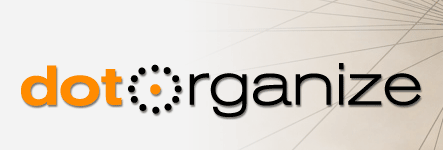Enhance Strategic Support and Information Resources
Clear organizational objectives drive smart online strategies. In order to support these objectives with appropriate technology solutions, organizations need to understand what’s possible, and they need access to ”technology integrators” who specialize in aligning organizational goals with available options.
Conclusions
- Many low-cost tools exist for organizers, but they don’t know where to look or how best to choose from available options. Understanding technology possibilities is a first and crucial step toward technology empowerment. This includes access to raw information, as well as support to weigh various options and determine what best meets their needs.
- “Integrator” networks need strengthening. In his thoughtful essay Three Pillars of Social Source, Gideon Rosenblatt uses the term “integrator” to refer to those individuals who, “…specialize in listening to client needs and matching these needs with the right mix of technology and strategy.” Integrators understand both organizing and technology, and they have strong processes in place to integrate the two effectively. Their skills enable them to help users define their objectives, understand the options, and wade through potential solutions.Ultimately, integrators develop online strategies that are effective, technologically sound, aligned with an organizational budget, and sustainable. Unfortunately, not enough integrators exist in the field. Consequently, this work falls on software developers and technology service providers, who specialize in providing tools, not consulting services. The result is a tremendous amount of frustration on both sides — organizers don’t have access to technology-neutral strategic guidance, and technology providers must provide a level of support beyond their service offerings, which they (often admittedly) do not have the expertise to provide well.
Recommendations
- Develop an online resource hub for the organizing sector. Providing a searchable database of tools, costs, recommendations, user ratings, and a repository of user-generated best practices and implementation guidelines will aid organizers in understanding what’s available, what works, and how to choose the best technology options to suit their objectives.
- Develop an online searchable database of potential integrators. This online directory could work much like the SPIN Project’s, Communications Consulting Directory, which lists individuals and organizations offering media relations services to grassroots and nonprofit groups. While some encouraging attempts have been made to centralize this kind of information in the technology sector, the results are often not very helpful to non-tech savvy organizers. In order for a resource like this to be useful for its intended audience, we should first diligently identify user needs, pay careful attention to user interface design, and present relevant information in an accessible way.
- Research the potential of “automated integrators,” akin to NPower’s Web-based Tech Atlas, which guides nonprofits through a technology planning process. An automated integrator could guide organizers through an online strategic planning process, and then instantly provide recommendations based on the information provided. This tool could be especially useful for organizations that cannot afford individual consulting services.










September 27th, 2006 at 9:23 pm PST
I love the idea of an online searchable database of potential integrators. Being an integrator whose organizational mission focuses on the environmental movement… I am often asked to make referrals. \”We need a ONE/Northwest for my sector\” is a common refrain. It would be great to have a database I could refer folks to. Also would be great to help identify those of us operating in a common community of practice.
October 14th, 2006 at 12:04 pm PST
Thanks for the report - excellent work. It is immediately helping me organize and articulate my own thoughts.
Thanks also for the endorsement of integrators! Gideon’s definition is great, I hadn’t seen that before.
I am unconvinced that ‘automated integrator’ tools can do the job of (or even be compared to) a human integrator. While the TechAtlas tool is a great structured way to gather the information needed for technology assessment and planning, there is no replacement for the person to person consultancy process which intelligently reviews that information, relates it to the organizational mission, the subtleties of the orgs culture and working practices and then tries to align these with a strategic direction, specific technologies and training needs in order to transform or improve effectiveness.
Perhaps one useful incremental step in that direction might be the tying together of the TechAtlas Approach with the upcoming directories like your ning.ToolCrib.com or www.SocialSourceCommons.org in which the data collected by the assessment tool triggers tech tool suggestions based on keyword/tagging from the directories. But while this might provide some rudamentary sign-posts, it would still leave a lot of human consultancy work to be done.
With regard to the database, my sense is there just aren’t very many integrators around - and we have a hard time keeping up with the speed of change and available tools ourselves. This deficit is also true of the for-profit world, and even of IT depts the world over, where in my experience the focus is on the hardware infrastructure and the break/fix model of support rather than improving data and process management.
Perhaps an ‘integrator incubator’ would be helpful!
October 16th, 2006 at 8:46 am PST
Hi Jenny,
A bundle of great thoughts here. Thanks! Love the idea of an \”integrator incubator\”… kind of a la the \”training for trainers\” model. Nice.